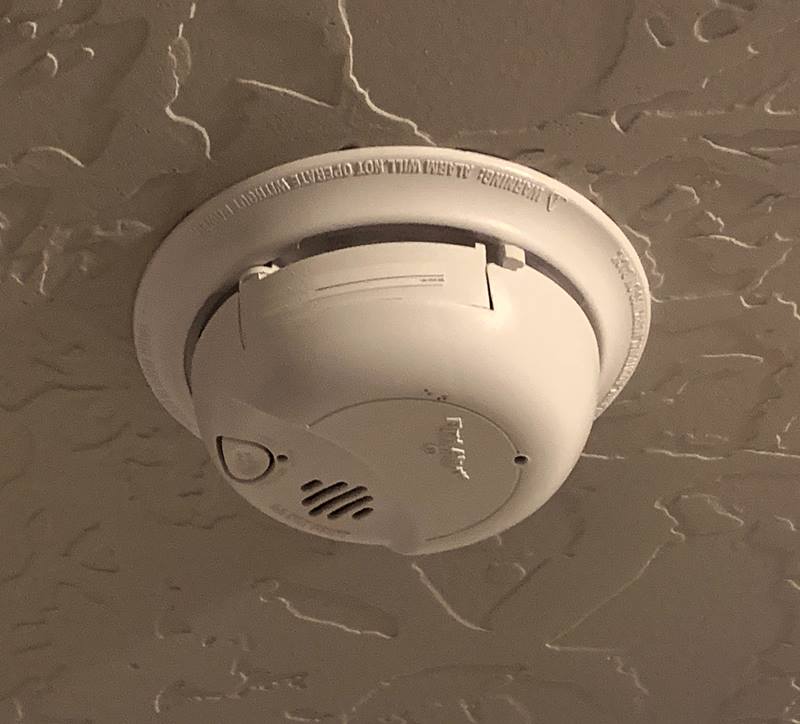Intermountain Healthcare experts raise warning of carbon monoxide risk.
(PRUnderground) November 30th, 2022

Winter is here and the temperatures are dropping, which means now when families are turning on the heat – and potentially exposing themselves to carbon monoxide (CO).
Marc Robins, MD, hyperbaric medicine specialist at Intermountain Utah Valley Hospital, says as temperatures get colder and people turn on their heaters, they need to also remember to protect themselves and their families from this deadly gas.
Carbon monoxide is often called the “Silent Killer,” because of its ability to take lives quickly and quietly. It’s virtually undetectable by humans, because it’s colorless, odorless and tasteless. In high enough concentrations it can kill within minutes and claims hundreds of lives each year.
The Centers for Disease Control and Prevention also reports approximately 50,000 people in the U.S. visit the emergency department each year due to accidental CO poisoning.
CO is often produced from a faulty furnace or other heating sources inside the home, workplaces, and schools. Exposures to CO also comes from automobile exhaust, small gas engines, and other fuel operated machines being used in poorly ventilated spaces.
“Nausea, tiredness, aches, and pains are just some of the carbon monoxide poisoning symptoms – they are very similar to the flu,” says Dr. Robins. “If you suspect you have been exposed to high levels of carbon monoxide you should leave immediately and seek help.”
At Intermountain’s Hyperbaric Medicine Department, carbon monoxide-poisoned patients are treated with hyperbaric oxygen delivered by breathing pure oxygen while inside a pressurized hyperbaric chamber, to reduce the chance of permanent brain damage.
Although treatment for carbon monoxide poisoning reduces the risk of possible permanent brain or cardiac injury, disability can still occur.
“It’s vital that people take the necessary precautions to prevent and avoid carbon monoxide exposure, as it’s the best way to keep everyone safe,” says Dr. Robins.
It can’t be seen, can’t be smelled, can’t be heard – but it can be stopped. There are several steps you can take to reduce your risk of exposure.
Here are some tips:
- Schedule an annual check-up for your furnace and hot water heater. It’s important to have all gas-fired furnaces and hot water heaters checked by heating and air conditioning (HVAC) professionals annually. Furnaces can crack and exhaust vents can become obstructed.
- Every home and business should have a battery-operated or battery back-up carbon monoxide alarm and monitor. Check or replace the detector’s battery when you change the time on your clocks each spring and fall. Place your detector where it will wake you up if it alarms, such as outside bedrooms.
- All homeowners should replace their carbon monoxide alarm every five years.
- Consider bringing a carbon monoxide alarm with you when you travel. In the past 20 years, at least 1,090 people have been injured by carbon monoxide leaks in U.S. hotels, with 32 people – including seven children dying at hotels. And many states do not require carbon monoxide detectors in hotel rooms or short-term rental homes. Some states only require them in new hotels and at least six states do not require detectors in hotels at all.
- “The detectors are small and compact. I just throw one in my suitcase with all my clothes and other items. It’s now a life-saving necessity on the packing list,” said Dr. Robins.
- Be aware of symptoms. Carbon monoxide poisoning can be lethal, sometimes with no advance sign of trouble. This is especially true when people are exposed during their sleep and are unaware or unable to call for help. The most common symptoms of CO poisoning are headache, dizziness, upset stomach, confusion, vomiting, and chest pains.
- Check any chimney flues for blockage.
- Don’t keep cars running in enclosed spaces, such as garages.
If a detector sounds, leave your home immediately, call 9-1-1, and seek prompt medical help if you suspect CO poisoning.
Marc Robins, DO, is a member of the Intermountain Medical Group and practicing physician focusing on hyperbaric medicines and its applications at Intermountain’s Utah Valley Wound Care and Hyperbaric Medicine Center in Provo, Utah.
About Intermountain Healthcare
Headquartered in Utah with locations in eight states and additional operations across the western U.S., Intermountain Healthcare is a nonprofit system of 33 hospitals, 385 clinics, medical groups with some 3,900 employed physicians and advanced care providers, a health plans division called SelectHealth with more than one million members, and other health services. Helping people live the healthiest lives possible, Intermountain is committed to improving community health and is widely recognized as a leader in transforming healthcare by using evidence-based best practices to consistently deliver high-quality outcomes at sustainable costs. For more information and updates, click here
The post How to Keep Your Family Safe from Carbon Monoxide Poisoning This Winter first appeared on PRUnderground.
Original Press Release.













